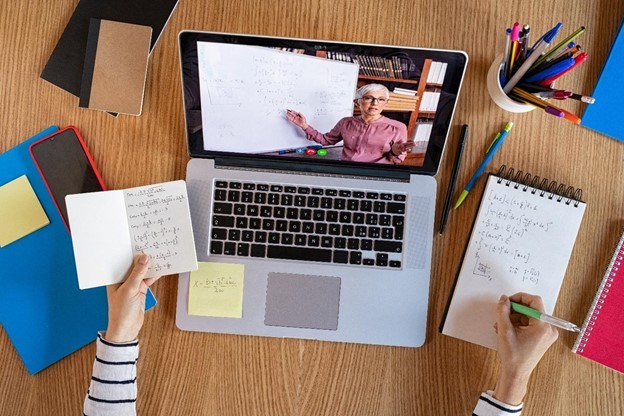
It sounds cliche, but there's something to be said for people who never let that curiosity for life fizzle. They realize they don't know everything yet, and they're eager to explore how other people think and do things. They're "lifelong learners". They see every day, every moment, as an opportunity to learn something new.
If you're feeling stuck in a rut, then committing to becoming a lifelong learner at any age can help you find happiness, advance your career, improve relationships, and expand your lifestyle. That's just the beginning, and you'll want to experience all the benefits of being a lifelong learner for yourself. Here's how to become one.
1. Consider Learning Part of Any Job
Whether someone has hired you to work on an assembly line or to create a multi-million dollar marketing campaign, treat that opportunity as paid education. Learn what works and find the best way to do it. Once you've mastered that task, you may choose to stay there because you love doing what you're doing, or you may decide it's time to learn something new.
2. Build Your Own Classroom
No. Not literally, unless woodworking is on your "Learn-it" list.
You'll learn more if you have a clean and organized space in which to learn.
This could be a digital space filled with reliable Internet resources all organized and easy to find as you systematically consume them to gain knowledge. Or it could be a physical space where you keep all of the tools you need to become the best at a hands-on activity.
You're responsible for your own learning as a lifelong learner, so you decide what goes into your classroom and how you'll use it. Keep the clutter out to expand your brain.
3. Move "No" to the Back of Your Vocabulary
Do you find the word "no" always getting between you and a new experience? Then actively push that "no" into a less prominent place in your life.
Of course, you need this simple word to convey what you don't want. But for many of us, "no" can become a way of life. And that's a missed opportunity to learn something new.
Ex:
Your friend: We'd love it if your family would join us for a camping trip.
You: No. Camping's not my thing.
Instead, try: You know I've never been camping (or haven't in a while). Maybe that's something we could try.
Insert a new exercise class, a different food, or anything you wouldn't normally do. Open yourself to new experiences. Maybe something isn't your thing because you never tried it before.
4. Create a "Learn-It" List
Do you ever feel bored? Then chances are you're not currently living as a lifelong learner. People who are committed to always learning new things know that there is always something new to learn. And they always have that next thing to learn when there's downtime.
Your learn-it list should include simple things that enhance your life, like learning to stain a nightstand or improving your interviewing skills. But don't forget also to think big so you can advance your career and expand your enjoyment of life. That may include completing a bachelor's or master's degree program online.
To avoid that mental block next time you're bored, create a list of things you want to learn to do. Then start working on the list. Check off your accomplishments and reward yourself in some way to stay motivated. Ultimately, the rewards of being a lifelong learner are plenty. But you may not see them initially, so a reward system can keep you going to make it a habit.
5. Ask Questions of People You Disagree with
"Oh, you believe the earth is flat. I'd love to learn more about why you think that." It never hurts to have a conversation with someone you disagree with. You can learn about how they think and practice tolerance of other belief systems. If it's not an ideology that's directly hurting others and you don't convey the idea that you agree with everything, then this is just another opportunity to learn.
6. Ask Questions When You Don't Understand
It's not a sign of low intelligence. Every mind thinks differently. We have personal experiences that influence how we see the world. Questions help us learn, and often, we need to verbalize them so the teacher knows where they can clarify.
7. Do It Immediately
When you're learning something new, make it a habit to find a way to apply that knowledge as soon as possible. It would do you no good to take a writing class where you don't do any writing. Those skills that made so much sense, in theory, have no practical application as far as your brain is concerned, so you'll forget them quickly.
But when you apply knowledge, the brain sees the connection and says, "Hey, this is something I can use. I'll remember this."
You've just learned 7 ways to start now becoming a lifelong learner. So get out there and apply that knowledge to gain the benefits of learning.
© 2017 Jobs & Hire All rights reserved. Do not reproduce without permission.
* This is a contributed article and this content does not necessarily represent the views of jobsnhire.com




